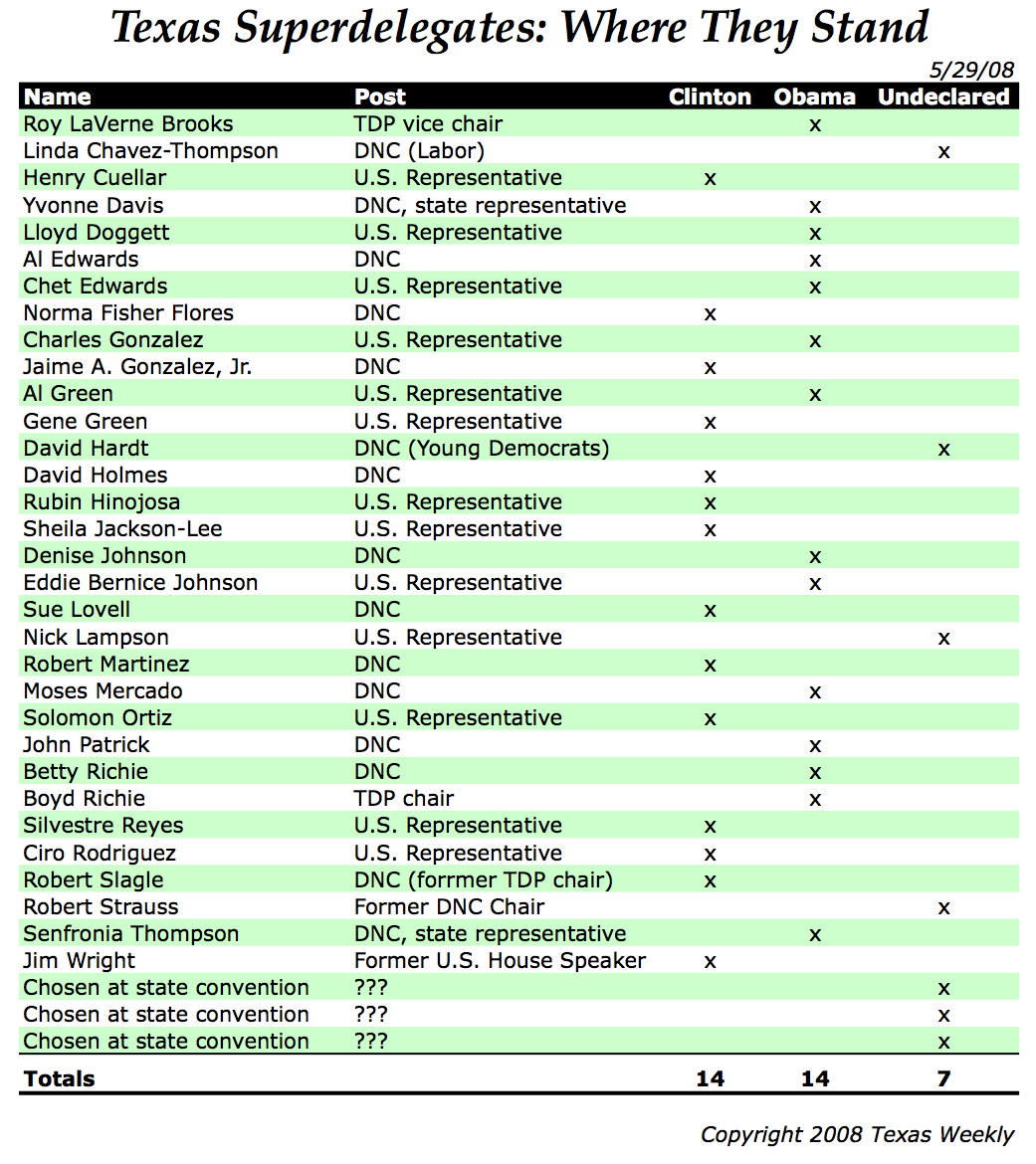Don Cain, the middle brother of the Pampa clan, is the new president of AT&T Texas. Former state Sen. David Cain and lobbyist Randy Cain got to Austin first. Cain, who's been with AT&T since 1979, is replacing James Epperson Jr., who's moving up the food chain to a national position with the San Antonio-based company.
Jake Bernstein, editor of the Texas Observer, is leaving for New York City and a gig with an investigative journalism startup called ProPublica. That outfit is massing two dozen reporters to do the kind of investigative reporting other organizations find too expensive to do.
Lauren Donder, chief of staff to former Sen. Jon Lindsay, R-Houston, has joined the intergovernmental affairs staff for Attorney General Greg Abbott.
Add director of criminal investigations to Pete Slover's title at the Comptroller of Public Accounts. The former investigative reporter is special counsel to Comptroller Susan Combs.
Cathy Bonner will be the new president and CEO of the National Coalition for Cancer Survivorship, a Washington, D.C.-based cancer advocacy group. She got the ball rolling on the $3 billion cancer bond program approved by Texas voters last year.
Walt Borges is actually getting his PhD in political science, which means we lose the office pool and means the former journalist will be teaching next year at Grinnell College in Iowa. Between now and then, he'll be doing research projects in Austin.
Spankings meted out by the State Commission on Judicial Conduct include one for a documented grab-ass episode: State District Judge Hal Miner got a Public Warning and Order of Additional Education for first "slapping" and then "making contact" with the rear end of a female attorney at a law firm Christmas Party.
That commission gave the same to Brent Keis, a County Court at Law judge in Fort Worth, for starting a conversation about slavery with a Black attorney who was presenting a case; and for talking to that attorney an his clients about the risks of going to trial with an accident a case with a Republican judge in a county where juries tend to be Republican, too, a talk he said was designed to encourage settlement negotiations.
And the commission Scrooged Gary Geick, a Rosenberg Justice of the Peace who has a habit of refusing eviction notices that come to him in the weeks leading up to Christmas every year. Officially, that got him a Public Admonition.
Gov. Rick Perry appointed:
• James Dyess, founder and CEO of Horizon Bank in Austin, to the Texas Optometry Board.
• Todd Barth, president of Bowers Properties in Houston, to the School Land Board.
• Richard Figueroa of Houston, Allyson Ho of Dallas, and Henry Nuss of Corpus Christi to the Texas Judicial Council. Figueroa is a financial advisor at Merrill Lynch. Ho is an attorney with Baker Botts. And Nuss is an attorney with Welder Leshin.
• Seven to the Nueces River Authority's board of directors, including Karen Bonner, an exec with Christus Spohn Health System Foundation in Corpus Christi; Rebecca Bradford, a vice president at Unique Staffing in Corpus; Joe Cantu of Pipe Creek; Dan Leyendecker, president of LNV Engineering in Corpus; Scott Petty, manager of Petty Ranch in Hondo; Curtis Raabe, an engineer with CDS/Muery Services in Poth; and Thomas Reding Jr., president of an eponymous company in Portland. Cantu, Leyendecker, Petty, and Reding are being reappointed; the other three are new to the board.
• Patrick Gordon of El Paso to another term on the Rio Grande Compact Commission. Gordon's a CPA.
Deaths: Former Rep. Joe H. Allen, a member of the House's "Dirty 30" who went on to become a lobbyist for Getty Oil and then for Enron, from complications of Alzheimer's Disease. He was 68... Houston developer, Sunset Advisory Commissioner, and Republican financier Michael Stevens, credited as a major player in the renewal of his city's downtown, of pneumonia. He was 58.


